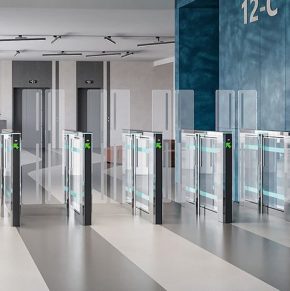
GGF provides greater clarity on COVID-19 guidance
Following reported confusion in the Glass & Glazing industry last week around the issue of whether or not companies can work in domestic properties, the GGF took it upon itself, as the industry’s leading trade body, to contact Government with some of the key questions raised by GGF Members.
Throughout the COVID-19 crisis, the GGF has always been strictly aligned to the Government Guidance and Public Health England (PHE) Guidelines.
These guidelines were published on the GGF website on 8 April and cited in numerous subsequent GGF articles, which included a direct link through to the Government web page on Social Distancing Guidance.
The GGF has been in correspondence with Government since the start of the lockdown and has been careful to convey an accurate and credible position based on the information received from Government.
In addition, the GGF has also been careful not to get embroiled in speculation and interpretations, which have led to unfounded rumours and misinformation causing the reported confusion within the industry; these are serious issues and advice this poor could, in the worst case, lead to loss of life and companies potentially facing very difficult legal positions.
The GGF position remains, as it has been since the outbreak of COVID-19, that companies must follow Government and Public Health England (PHE) Guidance on working in construction and in people’s homes. If working in Scotland, Northern Ireland or Wales, people should follow devolved Governments’ guidance, before taking any decision to carry out installation, repair or maintenance work.
Since 30 April, the GGF has sought and gained further clarity from the Government Department of Business Energy and Industrial Strategy (BEIS) and reiterates that companies must follow the latest Government guidance.
Following the discussion with BEIS, the GGF is now in a position to further clarify as follows:
– In unoccupied properties; the Government advises that work can continue, only if it is safe to do so but companies must adhere to the Government Social Distancing guidance on their website.
– In occupied properties, the Government guidance emphasizes that only essential repair or maintenance work should be carried out and, only if it is safe to do so and is carried out strictly in line with the Government Social Distancing guidance.
It is worth noting the term ‘essential’ can be defined as; work required on a building where the occupants’ health and safety could be at risk.
For example, this could be a damaged window or door, or a window or door that may be beyond repair and require replacement.
In relation to any essential work involved in a dwelling, this should only be carried out with the prior willing agreement of the occupants/owners.
– Work that should not be undertaken includes; non-essential home improvements inside occupied properties. This could include work such as upgrading windows and doors, glass interiors (such as screens, partitions, kitchen counter tops, splashbacks etc.), decorative glazing and roof lights (unless deemed an essential replacement).
– Work outside the home on land surrounding the property, the Government guidance shows that this can be carried out if it is safe to do so and in line with Government Guidelines on Social Distancing. This could include conservatories, porches, orangeries, extensions, replacement roofline and glass and garden structures.
– New build and housebuilding, the Government guidance shows this can continue, if it is safe to do so and in line with Government Guidance on Social Distancing and the Site Operating Procedures (SOP) published by the Construction Leadership Council. The latest version of SOP was published on the GGF website on 15 April.
– Manufacturing and processing, the Government advice shows that this can continue, if it is safe to do so and in line with Government Guidance on Social Distancing and guidance on the correct Personal Protection Equipment (PPE). The GGF published this specific guidance on 16 April on the GGF website.
On 4 May, the GGF asked all Member companies to continue to refer to the Government guidelines in conjunction with the above clarification, prior to taking the responsible decision to undertake work or not.
The GGF emphasises that health and safety comes first and that prior to making any decision, it is advised all companies undertake a proper health and safety risk assessment for each individual job. The GGF published guidance on health and safety risk assessments on 7 April.
In addition the GGF urges all companies, prior to undertaking any work, to check with their insurers that they are covered for Public Health and Health and Safety Employer liability.
The GGF also advises that if work is undertaken, companies must ensure their employees have suitable PPE, as outlined in the Government Guidance.
At present, there is no set date for when the Social Distancing guidelines will change or will be eased. It is in anticipated that there will be further Government announcements this month on Social Distancing in the workplace.
The GGF will continue to update Members and the industry as and when information from Government is received.
To see all the COVID-19 updates on the GGF website please, visit https://www.ggf.org.uk/category/covid-19/
Contact:
Glass and Glazing Federation
40 Rushworth Street
London
SE1 0RB
LONDON
t: 0207 939 9101
Visit the Glass and Glazing Federation (GGF) website
Visit Supplier's page
Latest news

17th April 2025
Nuaire shares expertise at Specifi Mechanical Services events in 2025
Indoor air quality and ventilation manufacturing specialist Nuaire is pleased to be exhibiting at the Specifi Mechanical Services events once again in 2025.
Posted in Air Conditioning, Articles, Building Industry Events, Building Industry News, Building Products & Structures, Building Services, Exhibitions and Conferences, Facility Management & Building Services, Heating, Ventilation and Air Conditioning - HVAC, Restoration & Refurbishment, Retrofit & Renovation
15th April 2025
West Fraser: CaberDek earns top marks from Home Counties carpentry specialist
A specialist carpentry sub-contractor covering housing sites across a large swathe of the Home Counties has come to value CaberDek from the West Fraser range for a variety of reasons: not least because the high quality panel product doesn’t destroy his operatives’ electric saws!
Posted in Articles, Building Industry News, Building Products & Structures, Building Systems, Case Studies, Restoration & Refurbishment, Retrofit & Renovation, Roofs, Timber Buildings and Timber Products, Wooden products
15th April 2025
GEZE: The Role of Access Control Systems in Enhancing Building Safety
Jane Elvins, Specification and Business Development Manager at GEZE UK, delves into the role of access control systems in enhancing building safety…
Posted in Access Control & Door Entry Systems, Architectural Ironmongery, Articles, Building Industry News, Building Products & Structures, Building Services, Doors, Facility Management & Building Services, Health & Safety, Restoration & Refurbishment, Retrofit & Renovation, Security and Fire Protection
11th April 2025
Don’t Do a Dave! It’s Time to Lock FIT Show 2025 in Your Calendar!
It’s that time again – FIT Show is back! You could be forgiven for thinking there won’t be much new to see when FIT Show returns to the NEC from 29 April – 1 May. Wrong!
Posted in Articles, Building Industry Events, Building Industry News, Building Products & Structures, Building Services, Continuing Professional Development (CPD's), Exhibitions and Conferences, Information Technology, Innovations & New Products, Restoration & Refurbishment, Retrofit & Renovation, Seminars, Training
 Sign up:
Sign up: